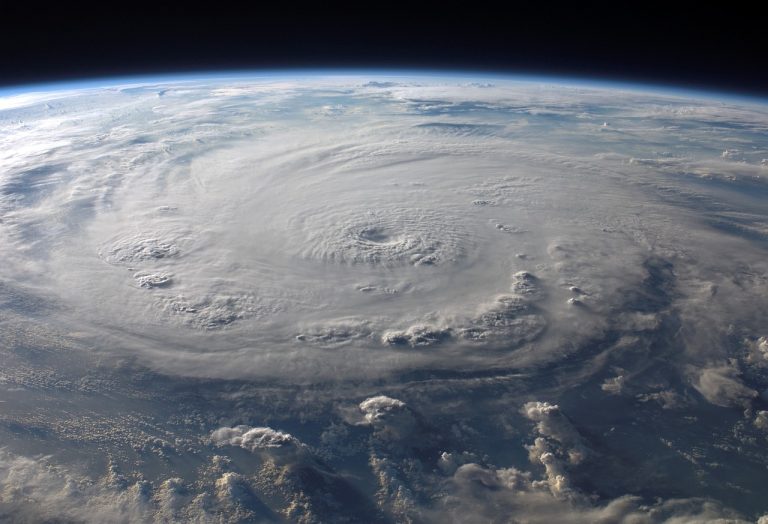Hurricane season is a critical time for businesses in Houston. The Gulf Coast is no stranger to powerful storms, and peak hurricane season—typically from August through October—poses significant risks to the region. As a business owner, it’s essential to prepare for these potential threats to ensure the safety of your employees, protect your assets, and minimize downtime. In this blog, we’ll explore key steps you can take to prepare your Houston business for peak hurricane season.
1. Understand the Risks
Houston’s location makes it particularly vulnerable to hurricanes and tropical storms. Understanding the specific risks your business faces is the first step in preparing effectively. Consider factors such as your business’s location, the likelihood of flooding, and the potential for wind damage. Reviewing historical data on past hurricanes that have impacted the area can also provide valuable insights.
Action Step: Conduct a risk assessment to identify the vulnerabilities of your business premises and operations. This will help you prioritize areas that need attention before the hurricane season peaks.
2. Develop a Comprehensive Emergency Plan
Having a detailed emergency plan in place is crucial for navigating hurricane season. This plan should outline the steps your business will take before, during, and after a storm to protect employees, secure assets, and ensure business continuity.
Key Elements of an Emergency Plan:
- Evacuation Procedures: Establish clear evacuation routes and designate safe locations for employees.
- Communication Strategy: Ensure you have reliable ways to communicate with employees, customers, and suppliers during a storm.
- Asset Protection: Identify critical assets and develop strategies for protecting them, such as moving equipment to higher ground or securing it with hurricane straps.
- Data Backup: Regularly back up important data and store it offsite or in the cloud to prevent loss during a storm.
- Business Continuity Plan: Outline how your business will continue operations if your physical location is damaged or inaccessible. This might include remote work arrangements or temporary relocation options.
Action Step: Regularly review and update your emergency plan, and conduct drills with your team to ensure everyone knows their roles and responsibilities.
3. Secure Your Business Property
Physical damage is a significant concern during hurricanes. High winds, heavy rain, and flooding can cause extensive damage to buildings and equipment. Taking steps to secure your property can mitigate these risks.
Protective Measures:
- Install Storm Shutters: Protect windows and glass doors with storm shutters or plywood to prevent breakage from flying debris.
- Reinforce Entry Points: Strengthen doors, garage doors, and other entry points to withstand strong winds.
- Clear Gutters and Drains: Ensure that gutters and drainage systems are clear of debris to prevent water accumulation and reduce the risk of flooding.
- Elevate Equipment: If your business is in a flood-prone area, consider elevating critical equipment and electrical systems above potential flood levels.
- Check Your Roof: Inspect your roof for any vulnerabilities, such as loose shingles or tiles, and repair them to prevent leaks and damage.
Action Step: Schedule regular maintenance checks before hurricane season to address any structural weaknesses or vulnerabilities in your building.
4. Review Your Insurance Coverage
Adequate insurance coverage is essential for protecting your business against the financial impact of a hurricane. Standard business insurance policies may not cover all types of damage, so it’s important to review your coverage and make any necessary adjustments.
Insurance Considerations:
- Property Insurance: Ensure your policy covers damage from wind and flooding, which are common during hurricanes.
- Business Interruption Insurance: This coverage can help you recover lost income if your business is forced to close temporarily due to a storm.
- Flood Insurance: Flood damage is typically not covered under standard property insurance policies, so consider purchasing separate flood insurance if your business is at risk.
- Employee Insurance: Review your workers’ compensation and health insurance policies to ensure they cover any injuries that might occur during a storm.
Action Step: Consult with your insurance provider to review your policies and make sure your coverage is adequate for hurricane-related risks.
5. Communicate with Your Team
Clear communication with your employees is vital during hurricane season. They need to know what steps to take before, during, and after a storm, and how they can stay safe.
Communication Tips:
- Distribute the Emergency Plan: Make sure all employees have access to your emergency plan and understand their roles.
- Use Multiple Channels: Use various communication channels, such as email, text messages, and phone calls, to keep employees informed during a storm.
- Establish Check-In Procedures: Set up a system for employees to check in before and after the storm to confirm their safety and availability for work.
Action Step: Conduct regular meetings with your team to review the emergency plan and ensure everyone is prepared for hurricane season.
6. Plan for Recovery
Recovery is a crucial part of your hurricane preparedness strategy. Planning ahead can help you resume operations more quickly and reduce the long-term impact on your business.
Recovery Steps:
- Inventory and Documentation: Keep an up-to-date inventory of your business assets, along with photos and documentation, to streamline the insurance claims process.
- Emergency Funds: Set aside emergency funds to cover immediate expenses after a storm, such as repairs or temporary relocation costs.
- Supplier and Customer Communication: Notify suppliers and customers of any disruptions in your operations and keep them updated on your recovery progress.
Action Step: Create a recovery checklist that outlines the steps you will take after a hurricane to get your business back on track.
7. Consider Solar Panels and Generators for Backup Power
Power outages are a common consequence of hurricanes, and they can disrupt your business operations for hours, days, or even longer. Investing in backup power solutions, such as solar panels and generators, can help keep your business running even when the grid goes down.
Solar Panels:
- Reliable Energy Source: Solar panels can provide a reliable source of energy during and after a storm, especially if the grid is down. With the right battery storage system, your business can continue to operate essential functions without interruption.
- Long-Term Savings: While the initial investment in solar panels can be significant, the long-term savings on energy bills, combined with the ability to keep your business operational during outages, make it a smart investment.
- Environmental Benefits: In addition to providing backup power, solar panels contribute to your business’s sustainability efforts, reducing your carbon footprint and reliance on non-renewable energy sources.
Generators:
- Immediate Backup Power: Generators provide immediate backup power during a power outage, allowing you to keep critical systems running, such as refrigeration, security systems, and essential office equipment.
- Variety of Options: Depending on your business size and needs, you can choose between portable generators for smaller operations or larger, permanently installed generators that can power your entire facility.
- Fuel Availability: Consider the type of fuel your generator uses (e.g., diesel, natural gas, propane) and ensure you have an adequate supply stored safely on-site or readily accessible.
Action Step: Evaluate your business’s power needs and consider investing in solar panels with battery storage and/or a generator. Ensure your team knows how to operate these systems safely and effectively in the event of a power outage.
Essential Flood Tracking Tools for Peak Hurricane Season
During peak hurricane season, staying informed about potential flood risks is crucial for protecting your business.
Here are some reliable flood tracking tools and resources that you can use to monitor conditions in real-time:
Harris County Flood Warning System
- Link: Harris County Flood Warning System
- Description: This local resource provides real-time flood monitoring specifically for Harris County. It includes water levels, rainfall data, and flood alerts, making it an essential tool for businesses in the Houston area.
Texas Flood
- Link: Texas Flood
- Description: Managed by the Texas Water Development Board, Texas Flood offers flood monitoring, emergency updates, and resources specifically for Texas residents. It’s a valuable tool for Houston businesses to track local flood conditions.
Peak hurricane season in Houston requires thorough preparation to safeguard your business. By understanding the risks, developing a comprehensive emergency plan, securing your property, reviewing your insurance coverage, and ensuring clear communication with your team, you can significantly mitigate the impact of hurricanes. Additionally, investing in solar panels and generators for backup power can provide your business with the resilience it needs to maintain operations during and after a storm.
At Muze Office, we understand the challenges that Houston businesses face during hurricane season. Our flexible workspaces, equipped with modern amenities, are designed to support your business even in challenging times. Whether you need a temporary office space during recovery or a reliable environment to maintain your operations, Muze Office is here to help. Stay safe, stay prepared, and let’s weather the storm together.




